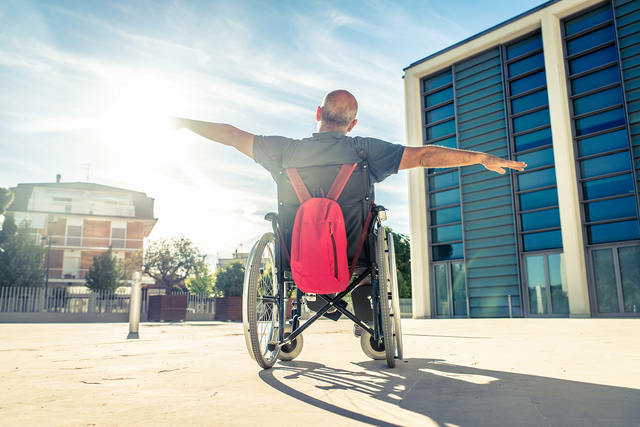Question 4 would exempt medical equipment from state sales tax
Nevada voters are being asked to approve a measure that would exempt oxygen machines, hospital beds, wheelchairs and other medical equipment prescribed by a health provider from state sales tax.
Question 4 is a proposed constitutional amendment that would require state lawmakers to exempt medical devices from the statewide sales tax rate, currently 6.85 percent. Approval requires passage by voters in this year’s general election and again in 2018.
A Review-Journal poll conducted Sept. 27-29 found wide support for Question 4, with 60 percent of likely Nevada voters in favor and 21 percent opposed.
Called the Medical Patient Relief Tax Act, the measure was pushed by a group called the Alliance to Stop Taxes on the Sick and Dying. The alliance is affiliated with Bennett Medical Devices, a provider of home medical equipment.
Backers gathered signatures to get the measure on the ballot after an effort to pass similar legislation failed in the 2015 Legislature.
The explanation and argument for passage written by a ballot committee of supporters states Question 4 “helps sick, injured, and dying patients and their families.”
“Almost all people will need some sort of medical equipment in their lifetimes,” the argument reads.
“It will help hundreds of families today and may help yours tomorrow.”
Opponents counter the exemption “seems like a good thing” on the surface but is “really a wolf in sheep’s clothing.”
“Sales taxes pay for myriad services Nevadans rely on including schools, police, fire departments, libraries, and parks, to name a few,” according to the argument against passage.
Critics argue the initiative is vague and lacks clear definitions of devices that would be exempt.
A report by the Guinn Center for Policy Priorities said 7 percent of Nevada’s population uses home medical equipment that can range in price from a $14 for a walking cane to $13,500 for a hospital bed.
The 2015 bill was passed by the Nevada Senate but failed to get a vote in the Assembly.
That proposal also included tax exemptions for hearing aids, prescription eyeglasses and contacts, and the Department of Taxation estimated the loss of revenue to state coffers at $25 million over 10 years.
Officials at the time also estimated removal of hearing and visual devices from the exemption reduced the estimated 10-year revenue loss to about $3.7 million.
But fiscal analysts with the Legislative Counsel Bureau, in a note included in the initiative explanation, said they don’t know how terms of Question 4 would be defined in legislation and cannot estimate the amount of sales that would be subject to exemption.
Because of that, revenue loss to state and local governments cannot be determined “with any reasonable degree of certainty,” analysts concluded.
Contact Sandra Chereb at schereb@reviewjournal.com. Follow @SandraChereb on Twitter.
















